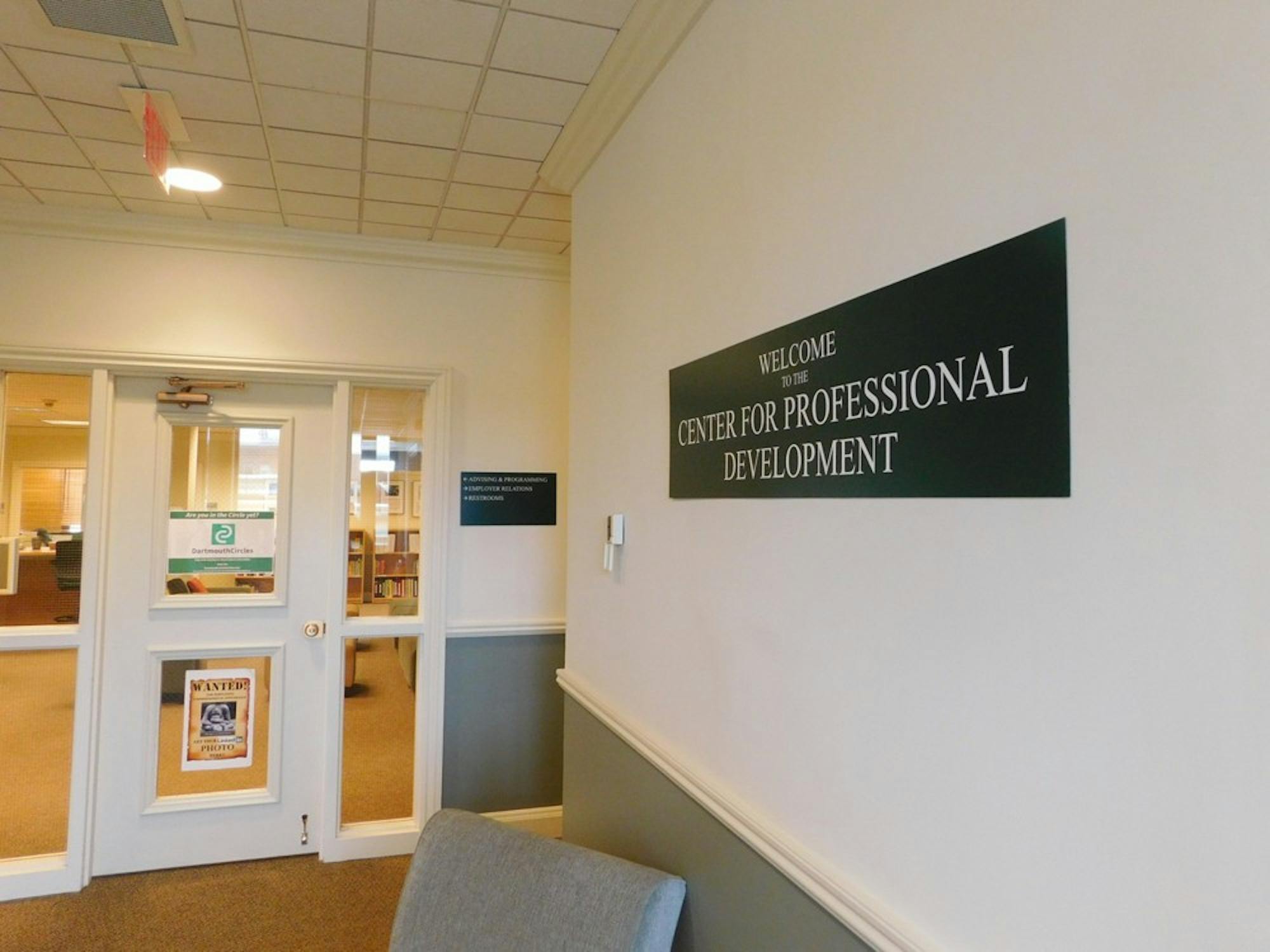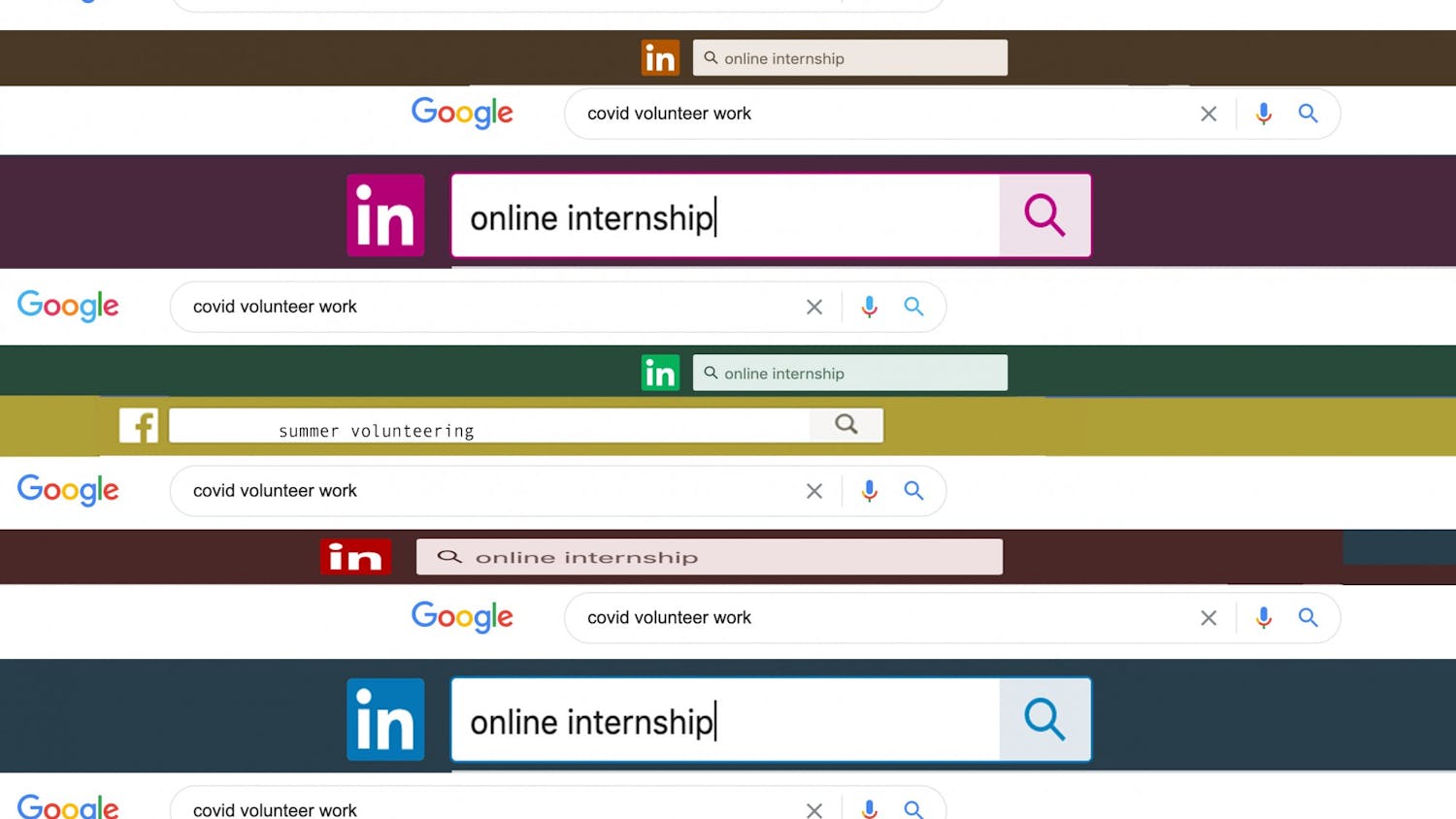Dartmouth students depend on summer internships as sources of income, housing and work experience, often with the hopes of obtaining a return offer for post-graduation work. In response to the ongoing COVID-19 pandemic, many in-person internships offered through the College and elsewhere have transitioned to remote opportunities, while other programs were shortened or canceled entirely.
Julie Nemcek ’21 said that she had secured a finance internship at a health insurance company this summer. In the wake of the COVID-19 outbreak, her internship was canceled, as the opportunity could not accommodate a remote format or a later start date.
“Right now, I'm just kind of frantically searching for a backup plan for summer,” Nemcek said. “I just think that this is [a] really valuable time to gain work experience that unfortunately a lot of people are losing.”
Nemcek added that she did not want to “get [her] hopes up again” while searching for remote internships, especially because “it’s so late in the game now,” and opportunities may be canceled again.
“Not having an internship your junior summer … makes [finding a job] that much more difficult in the future,” she said.
Companies that have transitioned to virtual internships have altered their summer programs to varying extents. Cindy Shen ’21 said that she recognizes that she is “lucky” that her banking internship is being offered remotely. Although her start date has been delayed by a month, her total compensation has not changed.
She said that while she is “kind of bummed out” that her internship, originally intended to take place in New York City, will be conducted remotely, she was not surprised by the decision given the circumstances.
Even for internships that have not been canceled outright, students may lose the communal nature of an in-person work experience. Tal Sternberg ’23, who had planned a summer internship with Google, said that she wanted to use the summer to gain a better understanding of the company’s culture.
“[I wanted to] see if [Google] was something I’d be interested in joining one day after graduating,” she said.
According to interim Center for Professional Development director Monica Wilson, the CPD has been in steady contact with employers in order to manage the impacts of the pandemic on students’ employment prospects. She noted that the uncertain situation requires especially frequent communication.
“What an employer may say today could change again within a week or two,” Wilson said.
In addition, the CPD is offering one-on-one career coaching and advising opportunities for students and is consistently updating DartBoard internship postings and the internship feedback database, Wilson said.
“We know that not all students are going to find the dream internship this summer, but they’re not alone,” she said.
Several Dartmouth-sponsored internships have shifted to remote offerings, including the cohort internships run by the Center for Social Impact and the Rockefeller Center for Public Policy’s First-Year Fellows program.
For their cohort internships, the DCSI typically places groups of student interns in three different cities to work on issues like community health and poverty alleviation. Leah Torrey, DCSI assistant director for social sector leadership, said that even in remote settings, these interns will have unique insight into nonprofit work that serves under-resourced communities during the pandemic.
“I think sometimes there's a myth that social impact organizations are not as innovative as the private sector, and that's not the case at all,” she said. “Our students are going to get a front-row view at exactly how agile these organizations are, how they're continuing to do remarkable work against all odds with the same pressures that the private sector or the public sector are also facing.”
Torrey explained that for some nonprofits, “work has scaled up really quickly” in response to COVID-19. For example, a food bank involved in the cohort internship program is “seeing a huge surge in need” because of high unemployment rates, according to Torrey.
A signature aspect of both the DCSI cohort internships and the First-Year Fellows program centers around students living together. While there are still structures to connect students remotely, Torrey noted that this facet of these programs is difficult to offer virtually.
“You can't really replicate what it means to live with seven other peers — after fanning out across Boston to all work on public health and coming home at the end of the day, eating dinner and sharing stories,” Torrey said.
The Rockefeller Center, a resource for many students interested in government and public policy, has made a full transition to operating remotely. Its First-Year Fellows program, in which first-year students gain experience in public policy through summer internships in Washington D.C. and receive training and mentoring from Dartmouth alumni, will be held virtually.
The program’s civic skills training course will now be conducted remotely, and opportunities for “virtual coffee meetings” will be provided to interns in order to simulate office networking, according to Robert Coates, Rockefeller Center associate director for co-curricular programs.
To ease the financial burden of working from home, the Rockefeller Center is offering students the opportunity to apply for a need-blind grant up to $2,000 for remote summer internships. Similarly, Torrey said that the DCSI will provide technology and housing stipends for their cohort interns to support the bandwidth necessary for remote work.
Coates mentioned that there may be benefits to the remote transition, including eliminating the need to search for temporary housing.
Rockefeller Center interns, he said, are now able to look beyond Washington D.C. for jobs — an option that may remain even after the crisis has passed.
“There may still be a remote option [for Rockefeller Center internships],” he noted, as companies try to take what they learned from the remote programs into the future.
For now, Coates recommended — based on advice that he received from students who held remote internships this spring — that summer interns do both short-term assignments and a long-term “collaborative project” to keep the internship engaging and successful.
With this in mind, Dartmouth students can have “a satisfying and rewarding remote internship,” he said.




